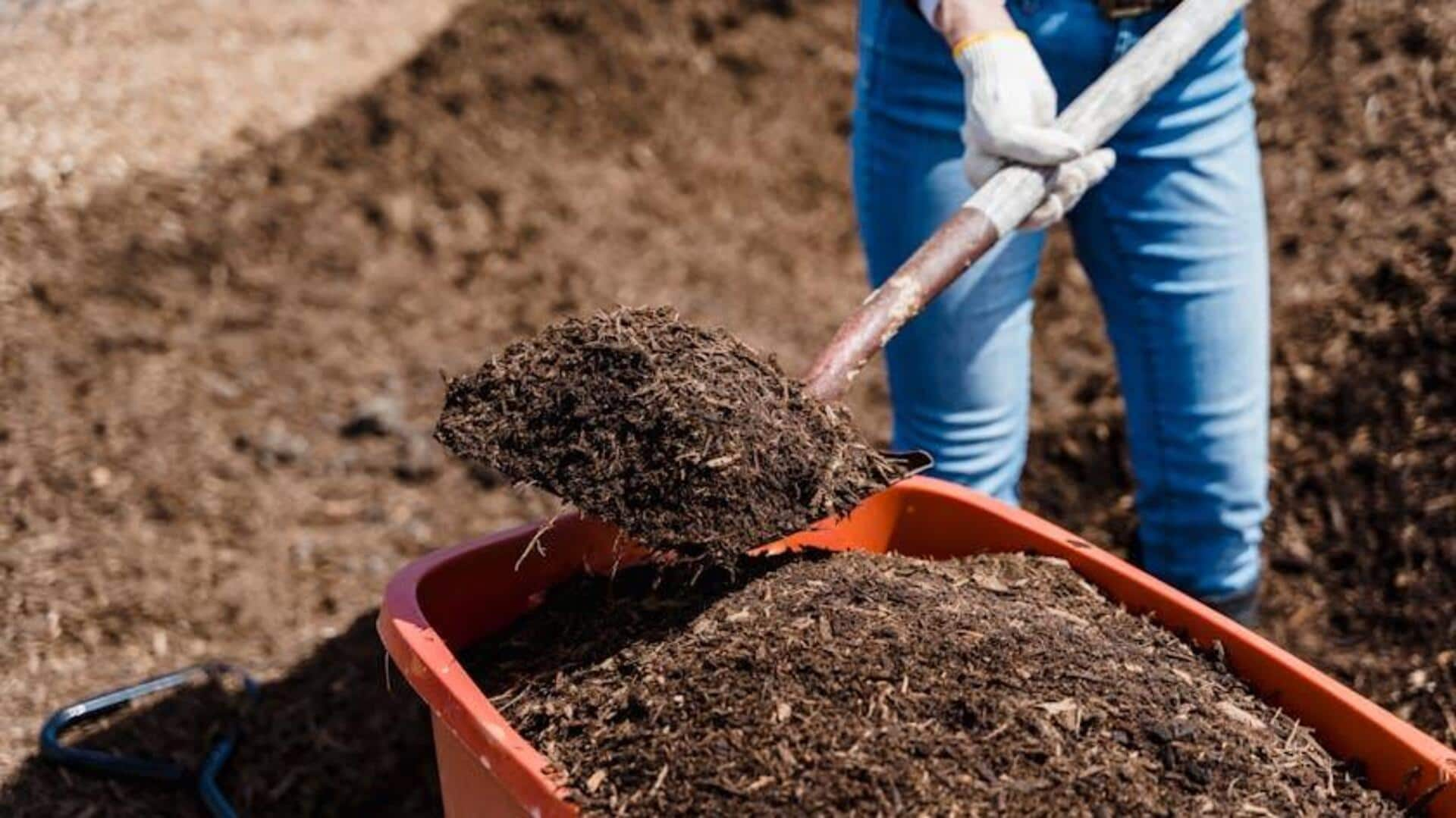
Gardening 101: Composting hacks you didn't know
What's the story
Composting at home is an inexpensive way to reduce waste and enrich your garden soil. Since space and resources are limited, urban homes often struggle with composting. But, there are a few budget-friendly hacks that can ease the process and make it more efficient. These tips revolve around using everyday household items and simple techniques to create a sustainable composting system without burning a hole in your pocket.
Kitchen scraps
Use kitchen scraps efficiently
Instead of discarding kitchen scraps, use them as precious gold for compost. Vegetable peels, fruit rinds, coffee grounds, and tea leaves, are great compost pile additions. These things rot fast and deliver necessary nutrients to your soil. By regularly collecting these scraps in a container, you can cut down on the waste while improving your compost's quality.
Recycled bin
DIY compost bin from recycled materials
Additionally, creating a compost bin using recycled material is also a very economical option for urban homes. Old wooden pallets or plastic containers can be repurposed into functional bins with minimum efforts. Just ensure proper ventilation by drilling holes if using plastic containers. This way, not only do you save money, but you also promote recycling by giving discarded items a new life.
Vermicomposting
Vermicomposting with minimal investment
Vermicomposting is using worms to breakdown organic matter into nutrient-rich castings. It is compact and effective for urban spaces. You can start with a small investment, by buying red worms online or from local suppliers, at reasonable prices. A simple container with bedding material like shredded newspaper makes an ideal habitat for the worms.
Layering technique
Layering technique for faster decomposition
Implementing a layering technique speeds up the decomposition process in your compost pile. Alternate layers of green materials such as vegetable scraps with brown materials like dried leaves or shredded paper to keep the balance between nitrogen and carbon content. This way, you ensure optimal conditions for the microorganisms responsible for breaking down organic matter efficiently.
Turning compost
Regular turning enhances aeration
Regularly turning your compost pile is essential for improving aeration, which greatly expedites the decomposition process. The best part? You don't have to spend anything, just invest time. By manually turning the compost every few weeks, you can handle decomposition rate efficiently, irrespective of the size or volume of the compost. This activity can be performed indoors and outdoors both, making it a versatile urban composting solution.